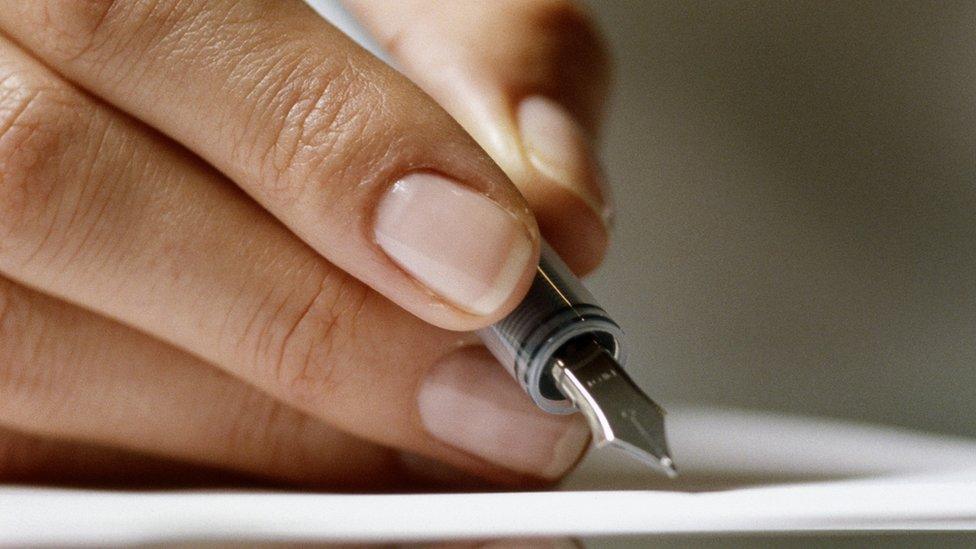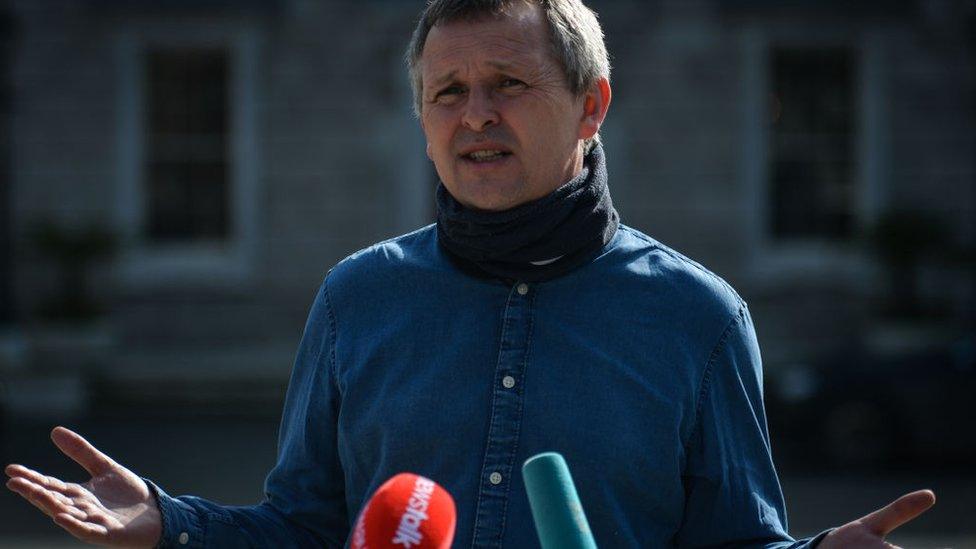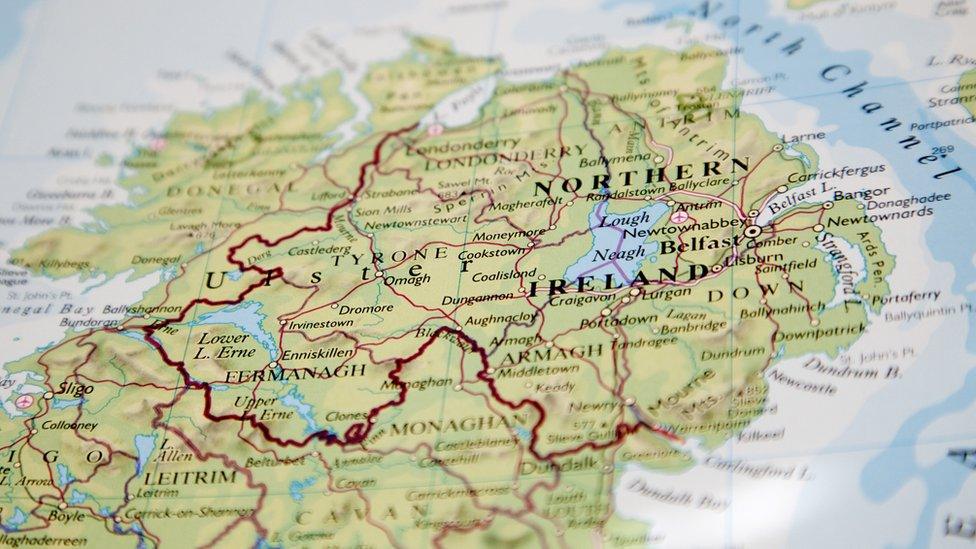Irish census 2022: Public to have their say in new time capsule feature
- Published

Irish residents will have the opportunity to share their wit and wisdom on this year's census forms
If you could leave a message for future generations in 100 years' time, what would you say?
Would you have some sage advice to impart to your great-grandchildren or useful tips on how to survive a pandemic?
Residents in the Republic of Ireland are being invited to add a short personal message when they fill in the next government census form in April.
The new feature is called the "time capsule".
This is because the documents will be sealed and are not expected to be made publicly available until 2122.
"The time capsule is a dedicated space at the end of the census form for you to leave a message - if you wish - for your descendants/future generations/historians," according to census organisers.
"Your message can be about anything you want, to anyone you want."
By law, census forms must be completed by every resident in the state on a date of the government's choosing, however, the time capsule is voluntary.

When released, the personal messages will form part of a historical public record of life in Ireland in 2022
The idea was sparked because of the huge interest the public has shown in finding out about their relatives' lives from previous censuses.
It is among a number of planned changes to how the Irish government will collect its citizens' personal information this time around.
There will be eight new questions on Census 2022 forms, covering important 21st Century issues such as working from home; childcare provision; internet access and renewable energy sources.
There are also changes to 25 existing questions including new ways of asking citizens about religion, ethnicity, disability and the Irish language.
'Paint pictures of what life was like'
The introduction of the time capsule was raised in the Dáil (Irish parliament) on Tuesday, external by Junior Minister Jack Chambers.
"This optional section of the form will enable householders to complete a message of their choosing".
"These messages will be stored securely with the census forms for 100 years, when they'll be released to the public in line with Section 35 of the Statistics Act 93," Mr Chambers said.
Richard Boyd Barrett, an opposition politician from the People Before Profit party, speculated on what he might write on his own form.
"I think what I'll put in my time capsule is asking the people who are still here in 100 years' time: 'Has 100 years of government managed to sort out the housing crisis?'," Mr Boyd Barrett said.
"I fear we may well find they haven't."

Richard Boyd Barrett is planning to base his time capsule message on Ireland's housing crisis
The census process helps governments to shape public services according to population size, household locations and public need.
"The census, while helping us to plan for the future, is also a strong record of our past," said the census organisers, the Central Statistics Office.
"The results may just seem like numbers on a page, yet these numbers paint pictures of what life was like in Ireland in the 1920s, 30s, 40s, 50s up to the present day."
It is usual practice that all census forms are sealed for at least a century before they become a publicly assessible document, although some have been released early.
Since the foundation of the state, the Irish government has carried out more than a dozen censuses, sometimes conducting two within the same decade.
The pattern has been interrupted on some occasion due to the impact of other events.
A census should have taken place in 1976 but it was cancelled because of public finances and last year, the 2021 census was postponed due to the Covid-19 pandemic.
The rearranged Census night will now take place on Sunday 3 April 2022 and from the beginning of this month, census forms will begin to arrive in every home in the Republic of Ireland.
Related topics
- Published31 January 2022

- Published31 August 2021
